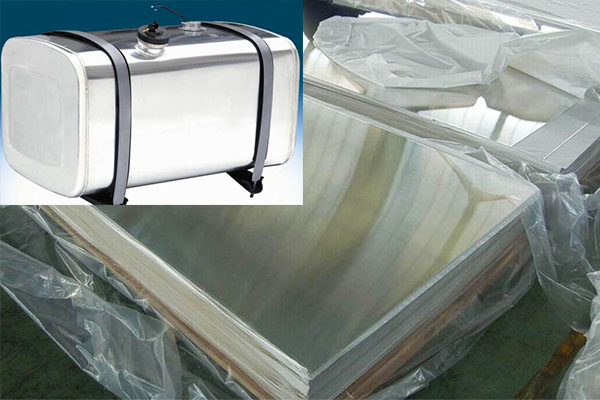With the concept of lightweight vehicles, traditional iron tanks have gradually been replaced by aluminum fuel tanks made of an aluminum oil tanker plate, especially heavy-duty vehicles such as trucks. The aluminum alloy fuel tank can reduce the weight of a vehicle by half, and it is not easy to rust. The most frequently used material is 5052 aluminium sheet metal, which is a kind of aluminum-magnesium alloy, and a rust-proof aluminum.
5052 aluminum oil tanker plate is used because of it brings light weight, high safety and favorite recycling prospects. Meeting the development needs of automotive lightweight, the aluminum alloy has a low density and is light in weight and large in volume as an automobile fuel tank material, which can significantly reduce the weight of the automobile. As the weight of the car body is reduced, its fuel consumption and exhaust emissions are also reduced. This has helped to save costs, reduce air pollution, and improve the environment.

The 5052 aluminium sheet metal is used for high safety in automotive fuel tanks. The 5052 aluminum plate has high strength, especially high fatigue resistance. In addition to magnesium, there are a small amount of manganese, chromium, niobium, titanium and other elements in the alloy, of which chromium and manganese act similarly, which can improve the stress corrosion cracking resistance of aluminum sheets, as well as the strength of base metal and weld, and reduce welding cracks. tendency. When a violent impact is encountered, cracks are less likely to occur and the safety of the vehicle is ensured. In addition, the aluminum alloy is not easy to burn and the explosion-proof effect is obvious. The aluminum alloy fuel tank market has broad prospects and is an inevitable trend in the future.
Last, aluminum products are easy to be recycled. Aluminum products hardly corrode or only slightly corrode during use. Among the conventional materials used in industry, the recovery rate of aluminum is the highest. In the cycle of aluminum-aluminum products-use-recycling recycled aluminum ingots-reprocessed into aluminum, the loss of aluminum is only about 5%, and its regeneration performance is higher than that of any common metal.